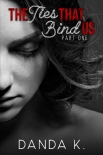The Sculptress V.S. Alexander (ebooks that read to you .txt) 📖

- Author: V.S. Alexander
Book online «The Sculptress V.S. Alexander (ebooks that read to you .txt) 📖». Author V.S. Alexander
“You’re coming along,” he said.
A white blur opened the door, gathered Emma’s clothes and disappeared, then reappeared next to the doctor. The two stood like towers over her, uttering soft, soothing words, as he placed the wire-mesh ether mask and cloth over her nose and mouth. The drops fell onto the cloth and the world spun away in darkness.
She awakened to find herself covered by a blanket, her head swimming with confusion because of her strange surroundings. The light in the room had faded to a dull gray. Emma rolled on her side as nausea clawed at her stomach. Thrusting her head over the edge, she spotted a gleaming metal pan on the floor filled with a whitish liquid. With great effort, she swung her legs off the table, but her knees buckled when her feet touched the cold tile. Her stomach jittered as she clung to the table and lowered her gaze.
A pair of arms lifted her from the floor while words that sounded like a hymn she used to sing in church poured into her ears. The arms positioned her on the table and covered her with the blanket.
“Get my baby,” Emma pleaded as she clutched the cold metal, her words hollow and echoing in her head as if spoken in a cave. “Show me my baby!”
The white figure left, but soon returned with a bundle wrapped in a white cloth. “Here.” Emma couldn’t make out the face or where the voice came from—the room blazed with an intense light.
Her head swimming, she sat up, took the baby in her arms, and uncovered the infant, revealing an oval mass of pink flesh where the face should have been—a slight crease marked the unopened mouth, two small indentations buttoned the skin instead of eyes. The mass wriggled in her arms, and, screaming, she fell back on the table.
The nurse rushed in, followed by the doctor.
“My God,” she wailed, half out of her mind. “It has no face! No eyes, or nose, or mouth!”
The doctor bent over her, stroking her arms and repeating, “Just a bad dream . . . a bad dream . . . a bad dream. This can happen when you’ve been under. Everything’s all right.” He lifted her shoulders from the table. “Take deep breaths, in and out, for a few minutes—you’ll calm down.”
After a time, she relaxed and felt the heavy weight of sleep upon her. Before drifting off, she sobbed and thought of her baby and what it might have looked like had it been born—what it might have become.
The room faded.
When she awoke the next morning, she was flat on the table, a pillow under her head. Someone had changed the sheet and her gown and covered her with a fresh blanket.
Light burst through the frosted windows, but she felt cold and unable to move except to turn her head. The pain had disappeared, but the haunting memory of the faceless infant hung over her, along with the feeling that somehow she had come back from the dead.
* * *
The tears that fell before and after the termination were a testimony to the power of the face—the one she had envisioned and the one that haunted her—a memory more like a nightmare.
For more than two years, Emma stayed with her mother at the house, doing little but atoning for the sin she felt she had committed. The long summer days and interminable winter nights dragged by, with little entertainment but her books; she even delved into an English version of Madame Bovary by Gustave Flaubert. The novel, with its blue cloth binding and gold gilt lettering, depressed her even further because she found many parallels in her own life to Emma Bovary’s.
Her drawings lay dormant under the bed, the charcoal pencil and pad relegated to the closet along with her hidden diary.
Kurt wrote no letters, although she wouldn’t have answered them anyway; she even refused to answer Charlene’s correspondence or her friend’s calls on the newly installed telephone at the farmhouse.
Only in the spring of 1911 did she emerge from her black mood, as the depressive cloud began to lift. Even Helen had expressed an interest in seeing her daughter, now a few months short of twenty-one, emerge from her self-induced seclusion.
“You need to circulate,” her mother said. “Time is growing short.”
Of course, her mother’s interests were her own, and not Emma’s, in the attraction of a husband, but only marriage with the “right man,” a tenet Helen had espoused for many years.
At the personal urging of Daniel Chester French, along with a few pointed suggestions from Mrs. Wharton, whose own relationship with her own husband continued to falter, Helen agreed to send Emma in April to the School of the Museum of Fine Arts in Boston. French arranged the weekend visit with the purpose of introducing Emma to Bela Pratt, a sculptor at the school. Her hostess for the weekend would be Louisa Markham, a friend of Boston socialite Frances Livingston.
Despite her misgivings, Emma boarded the train in Lee, bound for Boston, while her mother lectured her on how to conduct herself. “Stand up straight, don’t look down, be aloof but approachable, drink no more than one glass of champagne, if any.”
After a time, her mother’s instructions sounded like bees buzzing around her ears. She kissed Helen on the cheek and stepped aboard the heated car, settling in for the four-hour trip. The dawn had been obscured by clouds. As the train traveled east through the hills, the overcast thickened until it seemed a great fog had enveloped the landscape. Snow fell in spits through the mist, and the slick, naked branches of trees shivered in the wind.
Upon her arrival at the Boston station, she breathed in deeply, as if emerging alive from a coffin. The cutting air reddened her cheeks and forced her to quicken her step as she





Comments (0)